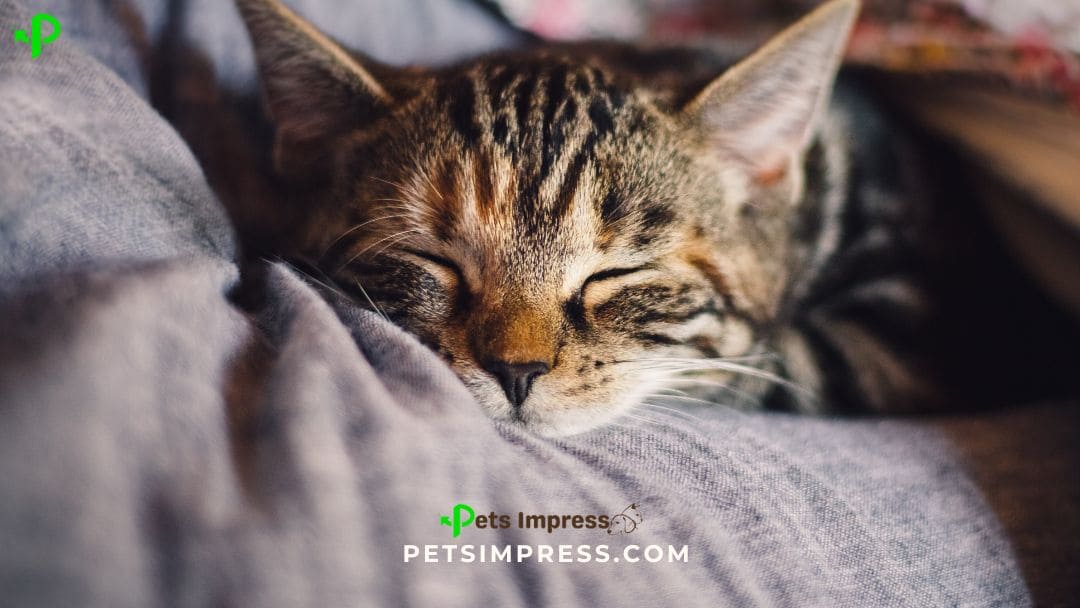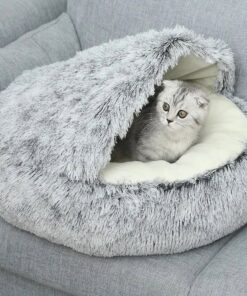Cats
Understanding Cat Sleep Patterns: How Much Do Cats Sleep?
Cats are renowned for their love of sleep, often leaving owners wondering just how much shut-eye their furry friends really need. Understanding cat sleep patterns can offer insight into their overall health and behavior.
Their sleep requirements vary based on age, health, and activity levels, from kittens to senior cats.
Key Takeaway to Understanding Cat Sleep Patterns:
- Understanding Cat Sleep Patterns: Understanding your cat’s sleep patterns is crucial for their overall well-being. Cats have unique sleep needs influenced by factors such as age, health, and natural instincts. Monitoring their sleep habits can provide valuable insights into their health and behavior, allowing you to address any changes promptly and ensure they receive the care they need.
Cats Sleep Much More Every Day than Humans
Unlike humans, who typically aim for eight hours of sleep each night, cats have vastly different sleep needs.
Adult cats can sleep anywhere from 12 to 20 hours a day, with seniors tending towards the higher end of that spectrum. Newborn kittens can sleep up to 24 hours, gradually decreasing as they age.
This extensive sleep schedule is attributed to cats being crepuscular creatures, most active during dawn and dusk.
Your Cat’s Hunting Instincts Lead to Sleeping More
A significant factor in cat’s sleep patterns is their innate hunting instincts. In the wild, cats expend considerable energy stalking prey, necessitating ample rest to recharge.
Even domesticated cats retain these instincts, engaging in short, deep sleep punctuated by brief periods of lighter rest.
This enables them to spring into action at a moment’s notice, maintaining vigilance even while dozing.
Cats Sometimes Sleep More When They’re Sick
Changes in a cat’s sleep routine can indicate underlying health issues. Excessive sleep, lethargy, and decreased appetite may signal illness, prompting a visit to the veterinarian for evaluation.
Monitoring your cat’s sleep patterns can provide valuable clues to their well-being.
Consider How Active Your Cat Was While You Were Sleeping
Owners may notice their cats seemingly sleeping throughout the day, but this could result from nocturnal activities. Cats that roam the house at night may need extra rest during the day to compensate.
Cats are known for their ability to quickly switch from deep sleep to alertness, allowing them to be ready for action. Monitoring changes in a cat’s sleep routine can help identify potential health problems, such as excessive sleep or decreased appetite.
Additionally, cats that are active during the night may require more rest during the day to make up for their nocturnal activities.
Setting up a camera to observe nighttime behavior can help determine if this is true.
-
Product on sale
 Cozy Plush Pet Bed$45.10 – $57.21
Cozy Plush Pet Bed$45.10 – $57.21 -
 Reversible Bed$90.29
Reversible Bed$90.29
Conclusion
Understanding your cat’s sleep habits is essential for ensuring their health and happiness. From kittens to seniors, each cat has unique sleep needs influenced by age, health, and instincts.
By monitoring their sleep patterns, and addressing any changes promptly, you can provide your feline companion with the care they deserve.
FAQs
How many hours do cats sleep on average?
Cats typically sleep anywhere from 12 to 20 hours a day, with seniors and kittens at the higher end of that range.
Why do cats sleep so much?
Cats sleep extensively to conserve energy, reflecting their crepuscular nature and innate hunting instincts.
Should I be concerned if my cat sleeps more than usual?
Changes in a cat’s sleep patterns, particularly if accompanied by lethargy or decreased appetite, may indicate underlying health issues and warrant a visit to the vet.
Can I train my cat to sleep at night?
While cats are naturally crepuscular, engaging in play before bedtime and providing a meal can encourage them to settle down for the night.
Do cats sleep deeply?
Cats typically sleep deeply for short periods, interspersed with lighter sleep phases that allow for quick responsiveness to stimuli.



